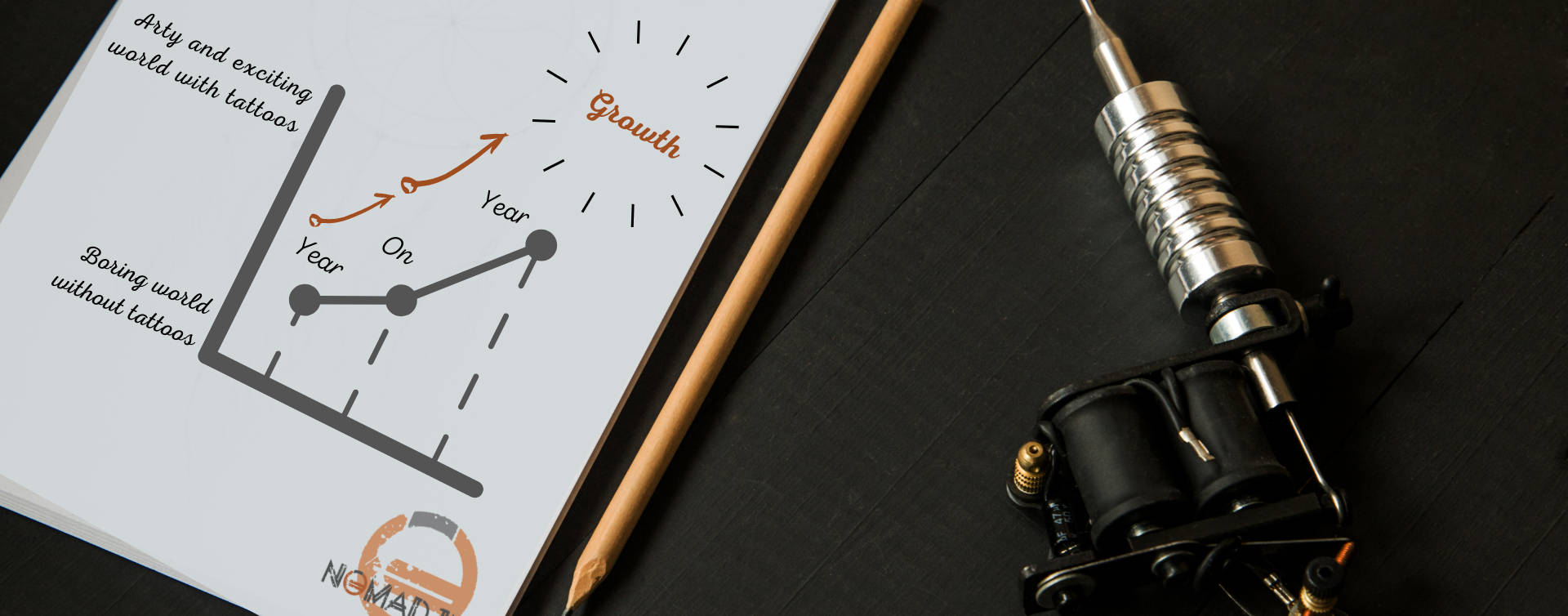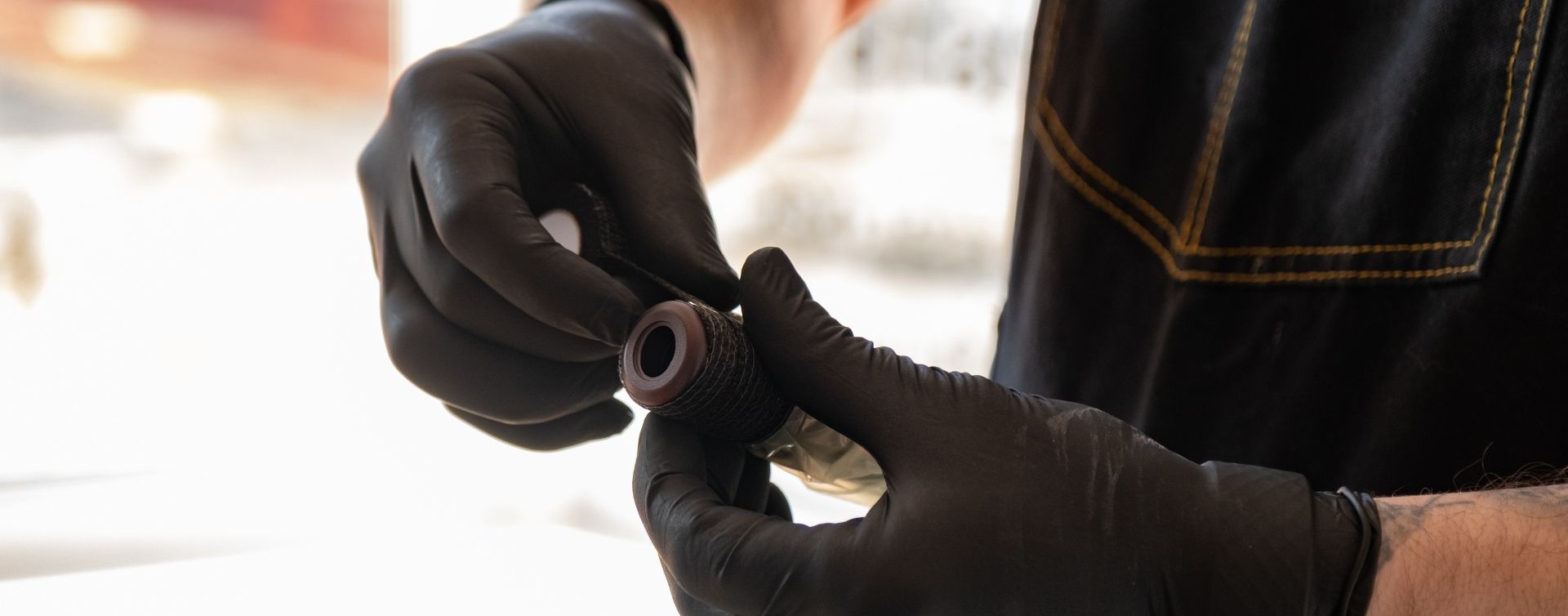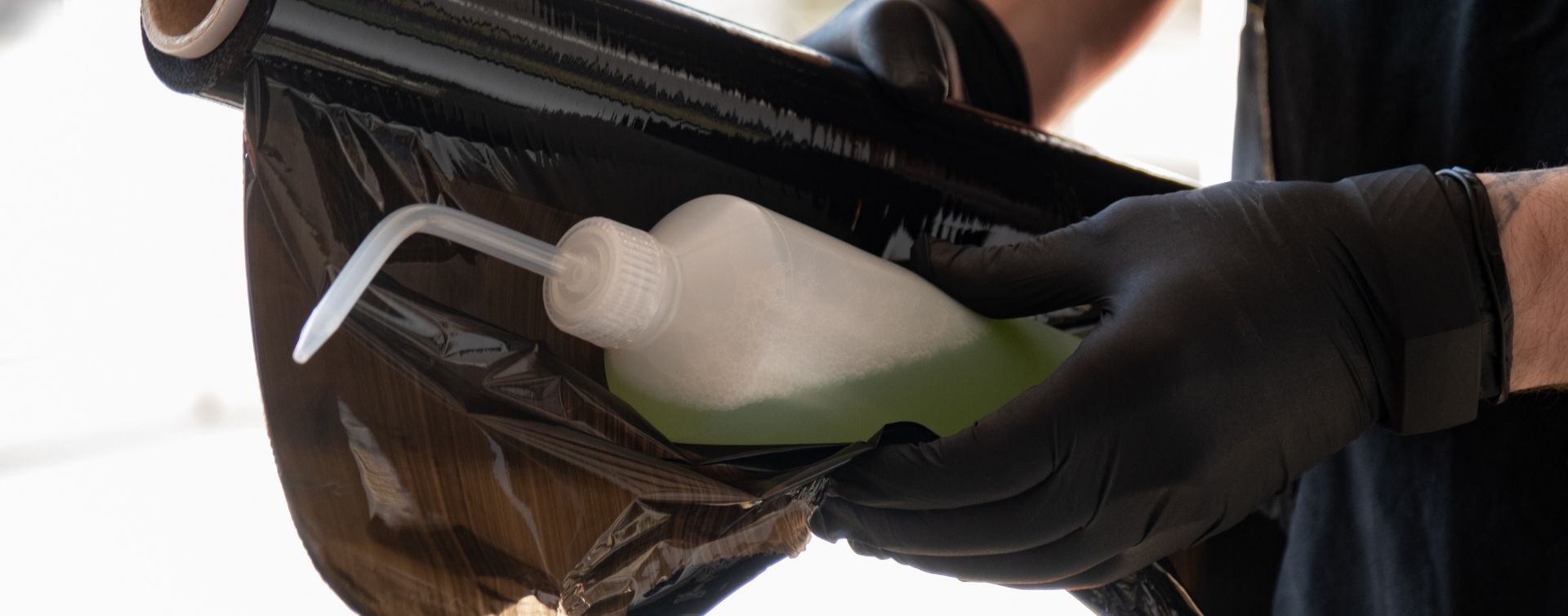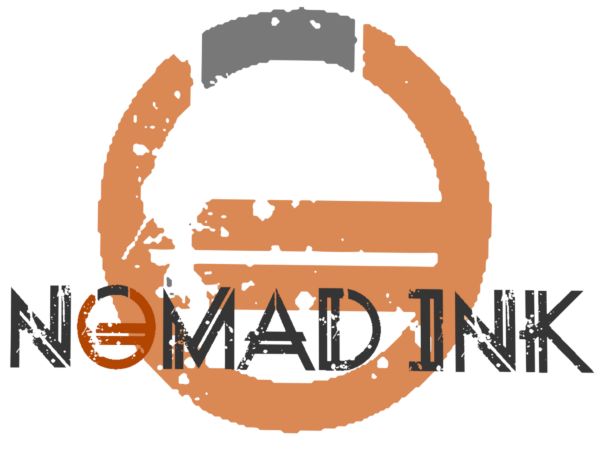Tattoo Safety – Will your tattoo make you ill?
You would be forgiven for assuming that your UK tattoo artist has a licence related to their skill and experience. Or that there is a program of hygiene inspections much like there is for the food industry.
The truth?
While it is a legal requirement for your tattoo artist and studio to be registered with the council in which they operate, the requirements are woefully basic. They also vary from council to council. Non industry-specific inspectors carry out a registration inspection by appointment for new studios and artists. Unless there is a serious complaint neither are inspected again. There is no legal and nationally recognised training requirement. There is no ongoing training requirement to ensure artists keep up with best practice.

We are part of an industry experiencing record growth. Tattoo industry experts place that rise in excess of 10% per year. Spend any time on social media or your local high street and the explosion of this industry is hard to miss.
Unfortunately, this has not led to an adequately regulated industry in the UK.
Why am I telling you this? Because once you know the responsibility for vetting your artist’s practices falls to you, you’re in a great position to start narrowing down your artist choices.
Materials at Nomad Ink
We only use the highest quality market leading products for both the tattoo procedure and for the hygienic set up, all of which meets EU standards of quality. This mark of quality is something we will continue to look for post Brexit. We only use single use needle cartridges that are opened from their sterile packaging in front of you. We carry out independent research around the needle cartridges we use to ensure their design and engineering protects the inside of the tattoo machine. This minimises the risk of cross contamination.
We cover our tattoo machines in plastic pockets before wrapping in disposable grip wrap. We cover all cables and power packs in single use disposable (but bio-degradable) plastic. Artists dismantle their tattoo machines to clean and sterilise them inside and out after every tattoo.
We use single use full bed covers on every tattoo (as opposed to cling film) so that it will not move or tear. These are heavy duty covers that protect the entire tattoo bed from blood borne contamination. We wrap our equipment and tables in heavy duty black wrap (again as opposed to cling film) for the same reason. This wrapping also stands up to the isopropyl alcohol used to clean it.

Skin care at Nomad Ink
We take care to minimise skin irritants. The more natural the product, the less drying (and more soothing) it is for the skin. We use 70% isopropyl alcohol to sterilise the skin before and after your tattoo; the same as that used in hospitals. We use gentle green soap for cleaning the skin before, during and after your tattoo.
We do not use vaseline during the tattoo procedure. Tattoo artists use a small amount of lubricating product on the skin as they tattoo and our preference is a product called Think. No drying. No irritation. Very little chance of allergic reactions. This is also the aftercare cream we recommend and it can be purchased at our studio.
Aftercare at Nomad Ink
We argue that aftercare is every bit as important as the tattoo process. Our aftercare procedure starts before you walk through the studio door. We will send you a copy of the aftercare information days in advance, giving you the chance to understand what we recommend so you can ask your artist any questions on the day. We are also on hand for a quick response to any queries or concerns in the weeks after your tattoo.
We apply a medical grade protective covering to your new tattoo. We do not charge for this. This film creates a thin and breathable second skin protecting your tattoo from infection. You leave this in place for 24-48 hours, after which we recommend you change it for a clean piece (purchased at the studio in sealed packets) to stay on the skin for a further few days.
Why don’t we charge for this initial protective wrap?
As well as protecting you from infection it also helps your new tattoo heal as the artist intends. It protects fine lines and subtle shading from ‘healing out’ during those first few weeks. If you’re walking around with a tattoo from us we want it to remain at its best. The healing process is key to that.
Training
All artists at Nomad Ink have been part of a formal apprenticeship at other studios, or have carried out their apprenticeship with us. This is an industry expectation to reduce the number of ‘scratchers’ on our high street – scratchers being tattooers who don’t learn the basics of technique and hygiene from experienced artists in established studios. Working in a relatively unregulated industry can be problematic because anyone can set up a tattoo studio with no formal training. Or worse, with poor training leading them to believe their practices are adequate.
Everyone who works at Nomad Ink, whether tattoo artist or not, has completed online training specifically in tattoo safety and hygiene practices. We renew this every 12 months to ensure up to date information and best practice.
Our artists are also encouraged to look beyond their own knowledge and keep learning. Including investing in online seminars or to attend live ‘advanced techniques’ seminars with the world’s best tattoo artists. Trends, products and standards are moving all the time. Our artists remain inspired and influenced by experts in this field. Ongoing training also helps ensure best tattoo technique and so no unnecessary skin trauma. The quicker the healing the less chance of infection.

Tattoo Studio Setup
Each artist at Nomad Ink has their own room. Why is this important? Having private tattoo rooms separate from the public areas of the studio means those passing through or visiting are nowhere near where you are being tattooed. Your artist can easily control how many people (and their bags/coats etc) are passing through the sterile space.
We do not have inks or other tattoo materials out on display. We keep them away from the tattoo areas and they are only accessed by the tattoo artist. Only sterile hands touch them, reducing chance of cross contamination.
We do not allow back to back tattoo appointments. Most of the work carried out at Nomad Ink is large scale, and so one person with one artist for the full day. However on days where shorter appointments are booked there will always be at least one hour between the end of the last appointment and the start of the next one. This allows for thorough cleaning between clients and ensures neither the appointments, cleaning process or set up procedure are rushed.
A Couple of Rules. Or Promises.
No dogs. You would think this goes without saying but you’d be surprised by how many tattoo studios have a resident pooch. I have seen tattoo artists stroke their dog with their gloved hand and then continue to work. As if that glove is there to protect them from their client, not the other way around. I have also seen the resulting infection.
We love dogs, probably more than we love people. But this is a tattoo studio where we will be piercing your skin thousands of times. The environment should be as sterile as practicable. You would not expect to find a dog in an acupuncture clinic, for example. However pictures of dogs and all talk of your family canine is very much encouraged. Compulsory, even.
No drugs or alcohol. Or hangovers. You might expect that to be another given. For some, drugs and alcohol are all part of the tattoo scene. There are many who wouldn’t dream of coming to a tattoo studio where they can’t enjoy a beer or a blaze with their tattoo artist. That is entirely up to them and everyone’s taste in artist and studio is different. You will find what works for you. But at Nomad Ink we are not rock stars. Unfortunately.
For most, going to a tattoo studio for a new piece of body art is a safe and exciting experience. Once you know what to expect in terms of tattoo safety you can get to the good bit – design!
We look forward to seeing you soon.


